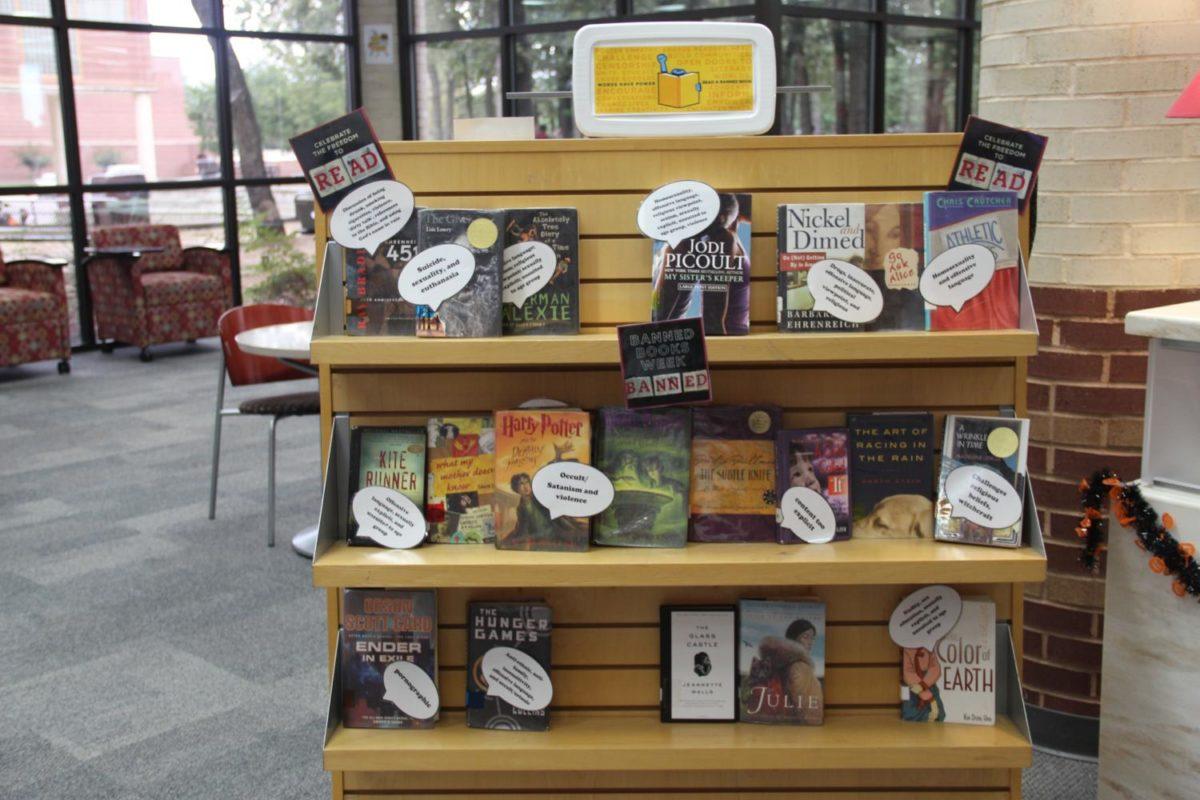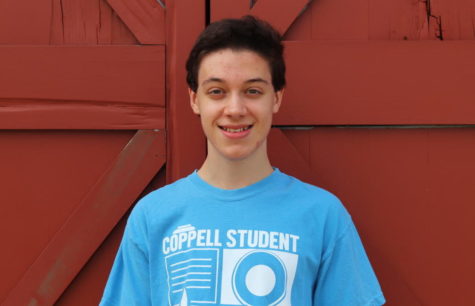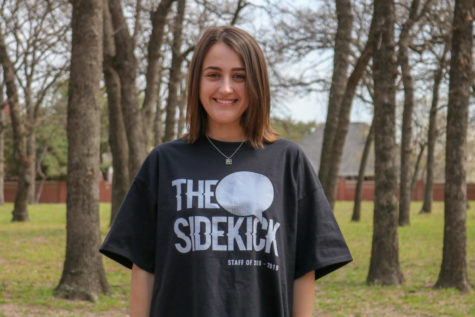Banned Books Week 2017: Why books are ‘challenged’, how students can participate
The Coppell High School library encourages students to participate in Banned Books Week. Inside the library, there is a shelf dedicated to banned books promoting freedom of speech.
September 29, 2017
Readers across the world are recognizing Banned Books Week, celebrating the freedom to read and express opinions. This celebration has taken place every year since 1982 during the last week of September. For 2017, it fell on the week of Sept. 24-30.
Students especially are encouraged to participate in Banned Books Week for their own benefit.
“Banned books just offer a variety of opinions and perspectives,” American Library Association (ALA) Program Officer Eleanor Diaz said. “I love reading banned books [and] delving into all those different narratives and learning about different things. Really, banning books infringes on your First Amendment rights. I think that it’s important to have those books available in libraries so you can check them out any time that you want.”
Despite having the ability to expose people to different cultures and opinions, thousands of books continue to be challenged every year. This includes some of the most widely-known pieces of literature of all time, such as the Harry Potter series by J.K. Rowling.
But why are books challenged?
For the most part, books are challenged by people – often times parents – with the best intentions in mind: to protect people, especially their own children, from ideas and information that may be too difficult for them to tackle.
However, this can translate to people challenging books purely because they express a differing opinion from their own.
For example, books containing material considered ‘sexually explicit’ are usually some of the most-challenged. Of the top 10 most challenged books of 2016, seven were deemed ‘too sexually explicit’. Interestingly enough, the top three all contained LGBT characters as well.
“There was a recent case in Chicago, which is which is where the ALA is located, [that surprised me],” Diaz said. “It was a challenge to This Day In June by Gayle Pitman…a children’s book about a pride parade. I guess some people just didn’t want that available at the library. I think [challenges such as these] are really interesting because it shows us different parts of societal concerns, maybe what we’re afraid of or we don’t understand.”
Another reason that books are commonly banned or challenged is if they use an excessive amount of profanity. Often times, books that are challenged for containing offensive language also tackle other controversial topics, such as drug use, themes that parents usually consider too mature for their children.
But there are other ways to keep material age appropriate without banning books, and this is what the Coppell High School library in particular aims to do.
“We use selection aids at Coppell ISD,” CHS librarian Lynn Hevron said. “They have professional reviewers who actually do college work on how to look at material, how to figure out what age group that might resonate with, and then we use these particular items to help us select age appropriate material.”
The American Library Association presents Banned Books Week as a celebration of the freedom to express one’s opinions, even if that opinion is considered unpopular. This is why they encourage students to stand up for their own freedoms.
To promote the cause, the CHS library is participating in the ALA’s ‘Rebel Reader Twitter Tournament.’
“There’s seven things you can do on Twitter this week, and the more often that you do them, the higher your chances are of winning prizes,” CHS librarian Cathy Arvizu said. “Prizes include free books or free book kits, or signed author’s copies of books…so we’re asking our students to help us with that Twitter tournament.”
Students interested in participating may do so until Sep. 30 by using the Twitter hashtags on the whiteboard outside the library doors, especially by using #RebelReader and tagging the CHS library.
Follow Anthony on Twitter @anthony_SK2017











